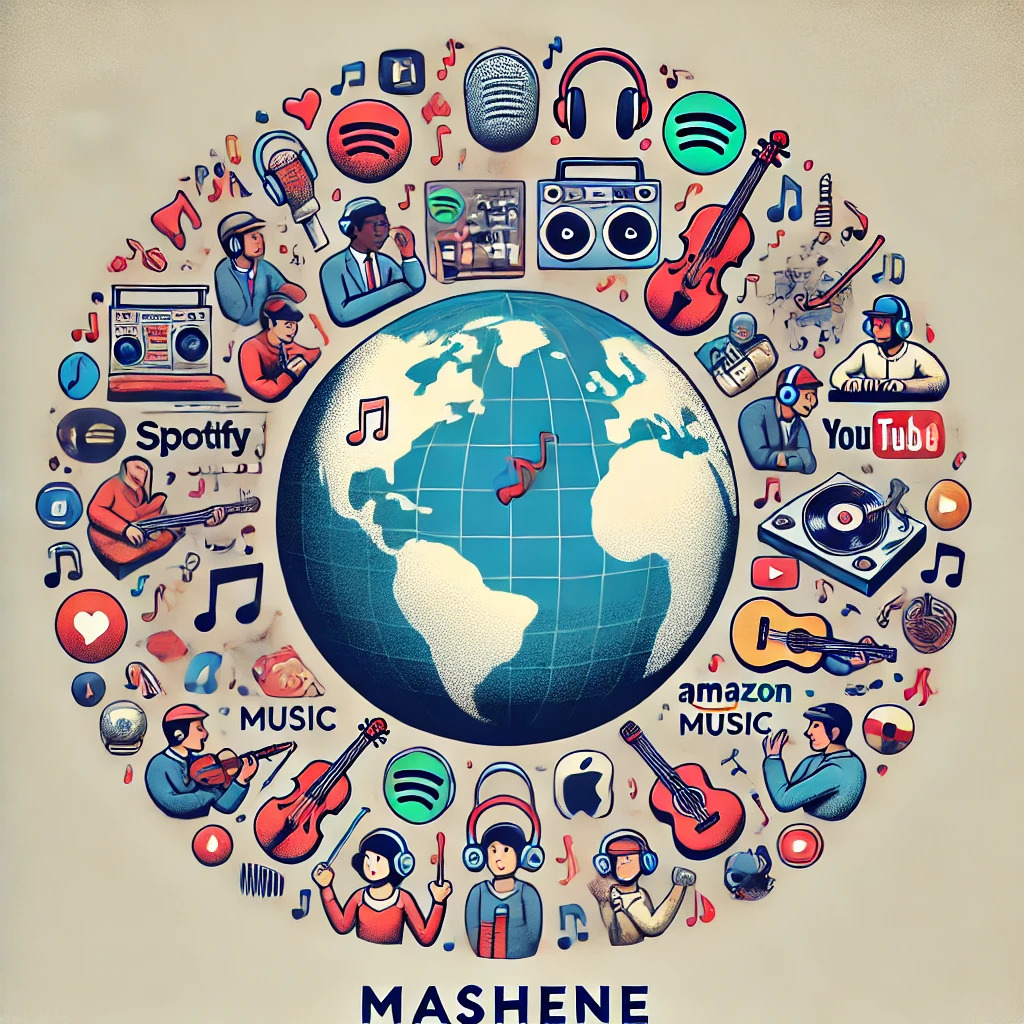Global Music Consumption
Digital technology and streaming services have revolutionized music consumption, making it easier for people to access a wide variety of music genres from anywhere in the world. Leading platforms such as Spotify, Apple Music, Amazon Music, and YouTube Music play a crucial role in shaping global music trends.
Top Music Genres Worldwide
- Pop: Characterized by catchy melodies and mainstream appeal.
- Rock: Known for its use of electric guitars, strong beats, and energetic performances.
- Hip-hop/Rap: Focuses on rhythmic vocal style and urban culture.
- Electronic Dance Music (EDM): Features electronic sounds and is popular in clubs and festivals.
- Country: Originates from folk music traditions and often tells stories of everyday life.
- Jazz: Emphasizes improvisation and complex rhythms.
- Classical: Includes orchestral, chamber, and solo instrumental music spanning centuries.
- R&B/Soul: Combines rhythm and blues with emotive vocals.
- Indie/Alternative: Encompasses a wide range of independent and non-mainstream music.
- Latin: Encompasses various styles including Reggaeton, Salsa, and Bachata.
Streaming Service Preferences
- Spotify: Popular genres include Pop, Hip-hop/Rap, and Rock.
- Apple Music: Favored genres are Hip-hop/Rap, Pop, and Rock.
- Amazon Music: Users prefer Pop, Country, and Rock.
- YouTube Music: Dominated by Pop, Hip-hop/Rap, and Latin music.
Age and Gender Dynamics
- Younger Audiences (13-24): Prefer Pop, Hip-hop/Rap, and EDM.
- Older Age Groups (35+): Lean towards Rock, Country, and Classical.
- Males: Favor Rock and Hip-hop/Rap.
- Females: Prefer Pop and R&B/Soul.
Regional Influences
- North America: Dominated by Hip-hop/Rap, Pop, and Rock.
- Europe: Western Europe favors Pop and Rock, while Eastern Europe prefers Folk and Traditional music.
- Asia: Pop is prevalent, with K-pop and J-pop being significant.
- Latin America: Reggaeton, Salsa, and Bachata are highly popular.
- Africa: Afrobeat and Afropop are prominent, especially in West Africa.
Evolution of Music Genres
- Pop: Evolved from the 1950s, integrating various styles over decades.
- Rock: Originated in the 1950s, spawning numerous subgenres such as punk, metal, and grunge.
- Hip-hop/Rap: Emerged in the 1970s, expanding into diverse styles like trap and conscious rap.
- EDM: Rooted in Disco and House music, now a global phenomenon with subgenres like techno and dubstep.
- Country: Developed from early 20th-century roots to contemporary styles including bro-country and country-pop.
- Jazz: Began in New Orleans, evolving through multiple subgenres like bebop, swing, and fusion.
- Classical: Spanning centuries, encompassing periods from Baroque to Modern.
- R&B/Soul: Combining gospel, jazz, and blues since the 1940s.
- Indie/Alternative: A broad category emerging in the 1980s and 1990s, covering genres like indie rock and lo-fi.
- Latin: Includes traditional and modern styles influenced by Caribbean and African rhythms.
Impact of Technology
Technological innovations such as the phonograph, radio, and digital platforms have revolutionized music access and production. The internet and social media have further democratized music distribution, allowing artists to reach global audiences directly.
Role of Festivals and Awards
- Festivals: Events like Woodstock, Coachella, and Glastonbury promote genre diversity and bring artists from different genres together, influencing music trends.
- Awards: The Grammys, MTV VMAs, and other award shows celebrate achievements across various music genres, impacting public perception and popularity.
Future Trends
- Fusion of Traditional and Modern Sounds: Expect more blending of genres, combining traditional instruments with modern production techniques.
- Niche Subgenres: Growth in niche subgenres as listeners seek unique and personalized music experiences.
- Cross-Genre Collaborations: Increasing collaborations between artists from different genres, creating innovative and diverse music.
Understanding these trends and preferences can help music creators and marketers tailor their strategies to engage specific audiences effectively.


